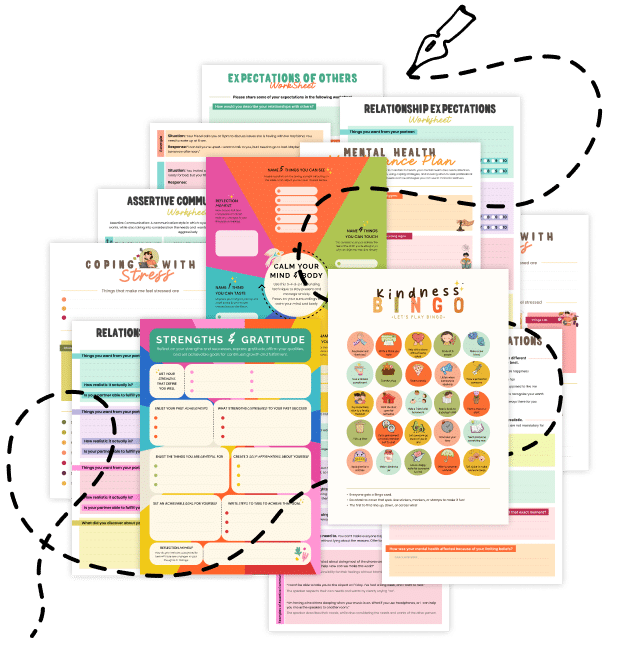20 Things You Should Know About Neurotransmitter Balance
Discover how the delicate equilibrium of brain chemicals influences mood, focus, and overall well-being. Explore 20 essential insights on Neurotransmitter Balance and learn tips to optimize your mental health.
1. What Is Neurotransmitter Balance?
Neurotransmitter Balance refers to the optimal equilibrium of chemical messengers—like dopamine, serotonin, GABA, and norepinephrine—that transmit signals between neurons. This balance is crucial for regulating mood, energy, cognition, and behavior.
2. The Role of Neurotransmitters
Neurotransmitters are responsible for relaying messages throughout the brain and body. They influence everything from happiness and motivation to stress responses and sleep patterns.
3. Why Balance Matters
When neurotransmitters are in balance, you’re more likely to experience stable moods, sharp focus, and overall mental well-being. Imbalances can contribute to issues like anxiety, depression, or fatigue.
4. Common Neurotransmitters
- Dopamine: Drives motivation, pleasure, and reward.
- Serotonin: Regulates mood, sleep, and appetite.
- GABA: Acts as a calming neurotransmitter, reducing anxiety.
- Norepinephrine: Enhances alertness and stress response.
5. Influences on Neurotransmitter Levels
Many factors impact neurotransmitter balance, including diet, exercise, sleep, stress, and even genetics. Lifestyle choices play a significant role in keeping these chemicals in harmony.
6. Diet and Nutrition
Foods rich in amino acids, vitamins, and minerals provide the building blocks for neurotransmitters. For example, tryptophan (found in turkey and bananas) is a precursor to serotonin.
7. The Impact of Exercise
Regular physical activity can boost levels of dopamine and serotonin, helping to enhance mood and reduce stress. Exercise is a natural way to support neurotransmitter balance.
8. Sleep’s Crucial Role
Quality sleep is essential for the regulation and replenishment of neurotransmitters. Disrupted sleep patterns can throw off the delicate chemical balance in your brain.
9. Stress and Its Effects
Chronic stress can lead to excess cortisol production, which may disrupt neurotransmitter production and receptor sensitivity. Managing stress is key to maintaining balance.
10. Supplements and Natural Aids
Certain supplements—like omega-3 fatty acids, vitamin D, magnesium, and probiotics—may support neurotransmitter synthesis and overall brain health. Always consult a healthcare provider before starting any new supplement.
11. Medication and Neurotransmitter Balance
Many psychiatric medications work by modifying neurotransmitter levels. For example, SSRIs (selective serotonin reuptake inhibitors) help maintain serotonin balance in treating depression and anxiety.
12. The Gut-Brain Connection
Emerging research shows that gut health can influence neurotransmitter production. A healthy gut microbiome can produce or affect chemicals like serotonin, which is largely synthesized in the digestive tract.
13. Mindfulness and Meditation
Mindfulness practices and meditation have been linked to increased levels of certain neurotransmitters, promoting relaxation, focus, and emotional balance.
14. Environmental Factors
Exposure to natural light, a calm environment, and even social interactions can influence your brain’s chemistry. A balanced lifestyle supports neurotransmitter health.
15. Recognizing Imbalances
Symptoms of neurotransmitter imbalance may include persistent mood swings, anxiety, depression, fatigue, and difficulty concentrating. Early recognition is the first step toward corrective action.
16. Behavioral Therapy
Therapies such as Cognitive Behavioral Therapy (CBT) can help adjust thought patterns that might be contributing to neurotransmitter imbalances, especially when combined with lifestyle changes.
17. Avoiding Overstimulation
Excessive exposure to digital screens or constant multitasking can disrupt your natural rhythm, potentially impacting neurotransmitter balance. Taking regular breaks and practicing digital detoxes may help.
18. Personalized Approaches
Every individual’s brain chemistry is unique. What works for one person—like a high-protein diet or intense exercise—may differ for another. Personal experimentation under professional guidance can help tailor strategies for balance.
19. Monitoring and Adjusting
Regular self-assessment of mood, energy levels, and cognitive performance can help you monitor potential imbalances. Journaling and routine check-ins with a healthcare provider can be very beneficial.
20. Related Topics to Explore
- Cognitive Load Theory: Understanding how mental effort influences brain function.
- Dopamine Fasting: Resetting overstimulation in the brain’s reward system.
- Mind-Wandering Mode: The impact of spontaneous thought on creativity and focus.
- Sleep Spindles: How sleep processes reinforce memory and neurotransmitter balance.
Quick Tips for Supporting Neurotransmitter Balance
- Eat a Balanced Diet: Focus on whole foods rich in nutrients that support brain health.
- Exercise Regularly: Engage in activities you enjoy to boost mood and energy levels.
- Prioritize Sleep: Aim for 7–9 hours of quality sleep each night to allow your brain to recharge.
- Manage Stress: Incorporate mindfulness, meditation, or gentle physical activity to lower cortisol levels.
- Stay Hydrated: Adequate water intake is essential for optimal biochemical reactions in the brain.
Neurotransmitter Balance is a cornerstone of mental well-being, influencing everything from your mood and focus to your sleep and energy levels. By paying attention to lifestyle factors like diet, exercise, sleep, and stress management, you can help maintain a healthy balance of these critical brain chemicals. Embracing small, consistent changes can lead to significant improvements in your overall mental health and quality of life.
Share this article with anyone looking to boost their mental well-being through natural, informed strategies. A balanced brain leads to a balanced life!

